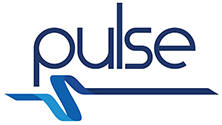Rowena Rodrigues, David Wright, Trilateral Research Ltd.
European researchers have developed a platform to help health services allocate scarce medical resources in the event of a pandemic, a stadium crush or other event that strains the resources of hospitals.
Health service stakeholders (ambulance personnel, hospitals and national agencies) can use the platform to share vital information such as whether they have any spare beds – or doctors, nurses and other paramedics – or adequate medical supplies — when one or more hospitals experiences an overflow of patients in a major medical crisis.
The platform – an application for laptops and tablets – was developed by the PULSE consortium, led by Irish SME Skytek Ltd, and funded by the EU’s Seventh Framework Programme. The other partners in the consortium included Trilateral Research Ltd. (UK), Finmeccanica (Italy), the Universita Cattolica Del Sacro Cuore in Rome (Italy), Onest Solutions (Romania), CESS GmbH (Germany), and the Health Service Executive (Ireland).
The allocation of scarce resources in an emergency or crisis raises various privacy and ethical issues, such as who gets treated first, the quality of care, informed consent, fairness, etc. Hence, the PULSE project partners (led by Trilateral Research) conducted an ethical impact assessment (EIA) to investigate and monitor the ethical, legal, and societal issues related to public health emergencies, and specifically in relation to the PULSE system. The project ran from May 2014 to October 2016.
The PULSE project had an Ethical Review Committee (ERC) comprising three external, independent experts from the Complutense University of Madrid; the University of Twente (NL) and the Helsinki Foundation for Human Rights (Poland). The ERC monitored ethical concerns and how the PULSE project addressed them.
The project concluded with several ethics-related recommendations to be considered by actors involved in public health emergency management:
The project recommended that policy-makers should foster respect for fundamental rights in the implementation of public health emergency measures.
EU Member States should monitor public health emergency measures, particularly those implemented by private companies and agencies, to ensure they meet legal and ethical obligations, and should put in place mechanisms to monitor compliance with obligations such as the provision of care notwithstanding personal risks, accountability mitigation, protection of personal and sensitive information, and over-triage or under triage.
Industry and policy-makers should collaborate in the development of effective, shared strategies and promote discussion on reducing potential legal complications in cross border co-operation and collaboration in emergencies.
The PULSE team also recommended that users share knowledge of the system with the public to ensure transparency and that users of public health emergency management systems should have a good understanding of the differences in healthcare practices and priorities across jurisdictions.
Most importantly, the PULSE researchers recommended that designers and developers of public health emergency systems should conduct an ethical impact assessment (e.g., by using the tools proposed in PULSE) in consultation with relevant stakeholders. They should particularly review and improve (as technology and implementation progresses) the security and integrity of their systems, and protect them against internal compromises and external attacks by using strong encryption and optimising access controls.
PULSE was the first European project to conduct an ethical impact assessment using the framework developed by Trilateral Research. PULSE is a Collaborative Research Project funded under the 7th European Framework Programme – Theme SEC -2013.4.1-4: Development of decision support tools for improving preparedness and response of Health Services involved in emergency situations (Grant agreement 607799).
Its website is www.pulse-fp7.com.
